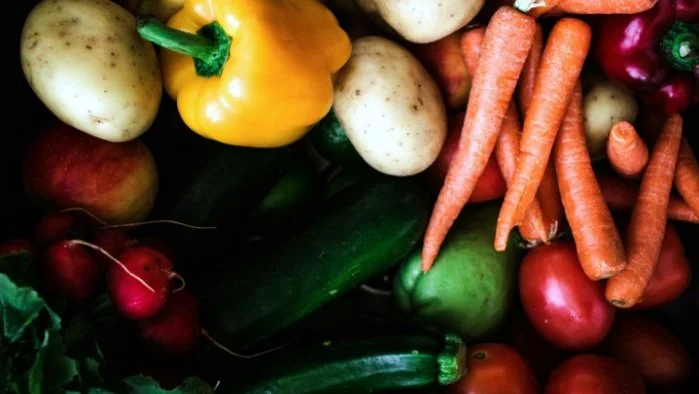Is Veganism Sustainable? Exploring the Environmental Impact
Veganism is more popular than ever, partially due to the environmental benefits of veganism. People are trying to make better choices for the planet overall. But some ask, "Is veganism bad for the environment?" While plant-based diets can lower greenhouse gas emissions and use fewer resources, they aren’t perfect.
Choosing sustainable food is a big way to fight problems like climate change. However, some farming methods for vegan-friendly foods still harm the environment. Traditional crop farming is a clear example. Issues like soil damage and high water use for certain crops make this clear.
Hydroponics offers a solution. This method grows plants without soil, using much less water and space. It also reduces the need for harmful chemicals. With hydroponics, vegans can enjoy fresh, eco-friendly food all year while helping the planet.
What is Veganism?
Veganism is a lifestyle that avoids all animal products. This diet eliminates meat, dairy, eggs, and other items made from animals. Many vegans also avoid products like leather or cosmetics tested on animals. The focus is on eating plant-based foods, like fruits, vegetables, grains, nuts, and seeds.
Related diets include:
Vegetarianism, which excludes meat but often allows dairy and eggs
Pescetarianism, a diet that restricts all animal flesh except fish
Flexitarianism, which is mostly plants but may include small amounts of meat or fish
These diets share some of veganism’s goals but are less strict.
The interest in plant-based diets is growing fast. People choose veganism for different reasons. Some want to improve their health, as studies link vegan diets to lower risks of heart disease and obesity. Others follow it for ethical reasons, like preventing animal cruelty. A big reason many switch, however, is to help the environment.
By eating plants instead of animals, we use fewer resources, like water and land, and produce less pollution. Many turn to plant-based diets because of this connection between veganism and the planet.
Environmental Impacts of Meat Consumption
Meat production has a major environmental impact, making it one of the biggest contributors to climate change. Raising animals for food, especially ruminants like cows, produces large amounts of greenhouse gases. Methane, a gas cows release during digestion, traps heat in the atmosphere even more effectively than carbon dioxide.
In addition to emissions, meat production is inefficient. Animals eat large amounts of plant-based feed, but only a small portion of that energy is converted into meat. For example, producing just one pound of beef can take up to 10 pounds of grain. This process wastes resources that could be used more efficiently to feed people directly.
Meat production is also resource-intensive. It uses vast amounts of land, water, and energy. Forests are often cleared to create grazing land, leading to deforestation and loss of wildlife habitats. Water usage is another issue; raising livestock requires far more water than growing crops like vegetables or grains.
Plant-based diets use significantly fewer resources than meat-heavy diets. A diet centered around fruits, vegetables, and grains requires less land and water and generates fewer emissions. Reducing the demand for meat can lower the strain on the planet’s resources and reduce the harmful effects of climate change.
The Environmental Benefits of Vegan Diets
Eating a vegan diet is better for the planet in many ways. One big reason is that it creates fewer greenhouse gases. Growing plants for food produces much less pollution than raising animals. For example, cows release methane, a gas that traps heat in the air and adds to climate change. Eating plant-based foods can lower the demand for animal farming and its harmful effects.
Vegan diets also save water and land. Growing vegetables or grains takes much less water than raising animals for meat or dairy. For example, producing one pound of beef can use up to 1,800 gallons of water, while growing the same weight in vegetables uses only a small fraction of that. Plant-based farming also needs far less land. Instead of cutting down forests to make space for animals or their feed, that land can stay wild, protecting plants and animals.
Another benefit is saving wildlife. Animal farming destroys habitats where many animals live. When forests and other wild areas are cleared to make room for agriculture, plants and animals lose their homes. This destruction can even cause some species to disappear forever. Reducing the need for animal products can keep these habitats safe and preserve biodiversity.
Choosing plant-based foods can lower pollution, save resources, and protect wildlife. These environmental benefits of veganism show why it’s a smart choice for anyone who wants to help the planet.
Challenges in Plant-Based Agriculture
While plant-based diets are often better for the environment, they are not without challenges. The way some crops are grown can still harm the planet. One issue is monocropping, which happens when farmers repeatedly grow just one type of plant in the same area. This method can drain nutrients from the soil, leading to poor soil health and making it harder to grow future crops.
Another challenge is high water usage for certain crops. For example, almonds and avocados, popular in vegan diets, need large amounts of water to grow. Almond farming, in particular, uses billions of gallons of water each year in areas like California, where water is already scarce. This makes it important to consider how our chosen crops affect local resources.
Pesticides and fertilizers also cause problems. Traditional farming often uses chemicals to kill pests and help crops grow faster. But, these chemicals can pollute water supplies, harm wildlife, and even affect human health. This shows that not all plant-based farming methods are equally sustainable.
Choosing a vegan diet is a step toward helping the environment, but it’s also important to consider how food is grown. Sustainable solutions, like hydroponics, can reduce these challenges. Hydroponics can make plant-based agriculture more eco-friendly. It manages growing crops without soil, using less water, and reducing harmful chemicals.
The Role of Hydroponics in Sustainable Veganism
Hydroponics is a smart way to grow plants without using soil. Instead, plants get their nutrients from water. This method saves water, uses less space, and avoids many problems with regular farming. Hydroponics is a great way to grow food sustainably, which is important for vegans.
Short Introduction to Hydroponics
In hydroponics, plants like leafy greens grow in water that has added nutrients to help them thrive. This system uses much less water than regular farming—up to 90% less! It also avoids harmful pesticides, making food healthier. Hydroponics needs less land, which helps protect forests and other natural areas. Many foods, including some of the best hydroponic plants, herbs, tomatoes, and greens, can be grown this way.
Hydroponics vs. Traditional Agriculture
Hydroponics is much more efficient than regular farming. Eden Green’s system, for example, uses 99% less land, 85% fewer food miles, and 98% less water. With hydroponics, food can grow year-round in controlled environments, so it’s always fresh and available. This makes hydroponic produce a reliable choice for people who care about the environment.
Perfect Match for Vegan Diets
For vegans, hydroponics offers fresh, sustainable food options. These include staples like leafy greens, popular Asian greens and vegetables, and fruits like strawberries. These foods are healthy and eco-friendly and help reduce the impact on the planet.
How to Make Veganism More Sustainable
Veganism can have an even bigger impact when paired with mindful food choices. One way to do this is by choosing local and seasonal produce. Locally grown food doesn’t travel far, reducing transportation emissions. Seasonal food is often fresher and requires fewer resources to grow.
Another way is to pick sustainably grown products, like vegetables grown with hydroponics. Crops like cooking greens raised in hydroponic systems are more sustainable. They use less water, fewer pesticides, and less land than traditional farming, making them a better choice for the planet.
Supporting new farming methods, such as vertical farming and hydroponics, also helps. These innovations grow more food in smaller spaces while using fewer resources.
Finally, reducing food waste is key. Buying only what you need, storing food properly, and composting leftovers can prevent waste at home. Together, these steps make veganism more sustainable and eco-friendly.
Growing with Eden Green
Eden Green is a leader in sustainable farming. Their advanced hydroponic systems grow fresh, eco-friendly produce with less water, land, and energy. This is great news for retailers who want to offer high-quality, sustainable foods to their customers.
By partnering with Eden Green, you can support a healthier planet while meeting the growing demand for sustainable food. It’s time to make a change—work with Eden Green to bring fresh, hydroponic produce to your shelves today!








